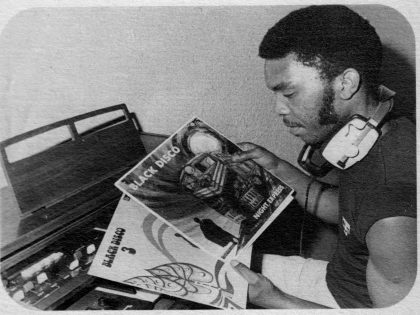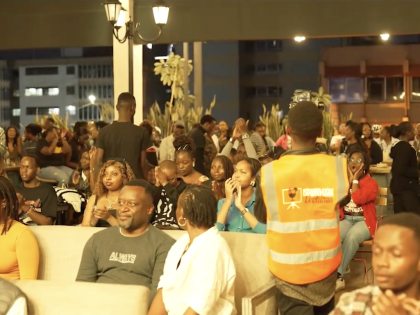More than a Weekend Special
African war criminals face The Hague. As for U.S. war criminals, they get to paint victims of their illegal wars—those whose bodies they broke into subjects of art.

"Photo Op," by kennardphillipps.
Named after the iconic song by the late Brenda Fassie, Weekend Special is our roundup of 10 things we couldn’t quite publish during the week—whether they only made it to our social media (we know not all of you are on there), got lost in a rant, or never made it into a full piece because we simply ran out of time. This is the revival. This edition just slipped in late Sunday night to qualify—but going forward, look out for it on Sunday mornings.
First up, a rant: If you’re an African war criminal, you will get dragged to the International Criminal Court or one of its tribunals. If you are a U.S. war criminal, you get to “paint people whose bodies were broken by the illegal wars you started” (as anthropologist Maggie Dickinson pointed out on Twitter). People Magazine will publish an approving profile and soft focus images of you, while Facebook statuses will gush over how cuddly you are now. And if you are a British war criminal, you get to consult Africans about “good governance” while you overcharge them for doing nothing that can be classed as any advice and get away with it every time. Oh, and you keep pushing your services as a peace envoy in the Middle East, when we know which side you’re on.
The work of Cameroonian photographer Steve Mvondo.
Contributor and one of my former students Yael Even Or writes in The Tablet about whether an Israeli company rigged Zimbabwe’s 2013 elections for Life President Robert Mugabe.
This mix by Sonny Abegaze.
We can’t make up minds about CyHi The Prynce’s “Nu Africa” with its lyrics about “… What if Jay and Bey went and bought some land in Egypt? / And Puffy put a stripper club off the sands of Kenya?” It also sounds and look like the street companion to the backpack favorite “Promise Land” by Nas and Damian Marley.
Former South African President Thabo Mbeki was quoted on the Mail & Guardian website as saying South Africans “attacking foreign nationals is not patriotic or revolutionary.” Here’s the problem: Attacks on other Africans in South Africa were just as common during his administration (in fact, the first major postapartheid xenophobic attacks happened when he became President) and he did very little about it. During one of the attacks he flew to Japan, took days to even respond, denied it was even xenophobia when it so clearly was and failed to comfort the victims.) More importantly, a simple Google search will show that under his 2 administrations the number of deportations went up considerably (some stats indicate deportations of mostly other Africans from South Africa nearly doubled during his tenure), making a mockery of his empty platitudes–especially his ‘stature’ as a Pan-Africanist of sorts now.
On the xenophobic violence in South Africa, we can recommend some reading from our archive–Sisonke Msimang, Achille Mbembe and Suren Pillay–and this by Dan Magaziner and I as well as something much older I wrote in 2008.
This interview featuring Jacobin Magazine editor Bhaskar Sunkara (they’re our partners) on the crises in American politics and the opportunities it present for Left politics:
We will say more on this in due course, but just to state here: South African political culture is at a low point; in the latest episodes some students (offshoots of the Rhodes Must Fall movement) demanded the visiting Ngugi wa Thiong’o “throw white people out” out of a lecture he delivered at the University of Cape Town. Another is the phenomenon of “paid twitter” that runs cover for ruling party politicians who fail to deliver to ordinary, mostly poor, black South Africans. The latest is the social development minister, Bathabile Dlamini, whose ministry may fail to process welfare payments for about 17 million people whose only income are these monthly grants.
Finally, we want to see all the films of French-Senegalese filmmaker, Alice Diop. As Youtube user Kaïraba Cissé concludes (and we’re paraphrase-translating) in the comments for this video, from November 2016: Alice Diop has talent.



















